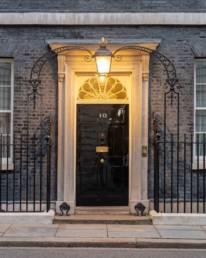In the 2022 Autumn Statement, chancellor of the Exchequer Jeremy Hunt announced that, over the next two years, the government would reduce the Capital Gains Tax (CGT) Annual Exempt Amount (AEA).
The AEA was cut at the beginning of the 2023/24 tax year and was reduced again on 6 April 2024. This could affect how much tax you pay on the profits you make from the sale of assets. It might also alter how you (and your Amber River IFA if you work with us) choose to approach your investment strategy.
Fortunately, there are some techniques you can use to mitigate the effects of the AEA cut. Read on to learn more about the details of the change, and how it might affect you.
As you’re reading, please bear in mind that the rules relating to tax are complex, subject to your individual circumstances, and can change at any time. That’s why it’s always worth seeking professional advice before making any decisions.
On 6 April 2024, the government halved the Capital Gains Tax allowance from £6,000 to £3,000
Capital Gains Tax is a tax on profits on assets
CGT is a tax you pay on profits you make when you sell an asset. However, you’re allowed to make profits up to a certain amount without paying any CGT. This is the AEA.
An asset could be a physical object such as wine, art or property. Alternatively, it could be shares in a company, units in a fund, or a business. Some assets – such as your primary residence, a car or UK government gilts and Premium Bonds – are exempt from CGT.
The rate of CGT you pay varies depending on the type of asset you’re disposing of, and your Income Tax band:
- 10% for basic-rate taxpayers (18% on a property that isn’t your primary residence)
- 20% for higher- or additional-rate taxpayers (28% on a property that isn’t your primary residence).
Capital Gains Tax Annual Exempt Amount halved in April
At the start of the 2023/24 tax year, the government cut the AEA from £12,300 to £6,000 for individuals, and from £6,150 to £3,000 for most trustees. On 6 April 2024, it made a further change, halving the AEA from £6,000 to £3,000 for individuals, and from £3,000 to £1,500 for most trustees.
As a result of this change, the amount of profits you can make from the disposal of assets in a given tax year without paying CGT has fallen. Consequently, you may find you face a higher CGT bill in the coming years.

There are ways to mitigate the effect of this tax change
If you’re worried about how the change to AEA might affect you, there are things you can do to mitigate any resulting increases to your CGT bill.
1. Make the most of tax-efficient wrappers
You don’t need to pay CGT when you profit from assets held within certain tax-efficient wrappers. Profits on assets held within pensions are one example. However, it’s worth noting that when you withdraw money from your pension fund, you could be liable to pay Income Tax.
ISAs are similar to pensions – you don’t pay CGT on profits made on assets held within them. As a result, it could be beneficial to make the most of your £20,000 annual ISA contribution limit (2023/24) before investing using non-ISA accounts. If you currently hold assets outside of an ISA account and haven’t hit your annual contribution limit, you may want to take advantage of the “bed and ISA” technique. This involves selling any investments you hold outside of an ISA before the end of the tax year, or “bedding” them. Then, you immediately buy back these same investments within an ISA account. Profits made on these investments would then no longer be liable for CGT.
However, depending on how much of your AEA you’ve used, you might incur a CGT charge when you “bed” your investments. Additionally, the value of the investment may have fluctuated, even in the short time between selling it and buying it back. Working with an Amber River adviser can help you to make the most of your ISA allowance.
2. Slow your rate of asset liquidation
If you’re currently in the process of liquidating an investment portfolio, you might want to consider slowing the rate at which you do so in coming tax years. By only making up to £3,000 in profits on the disposal of assets from 2024/25 onwards, you could avoid paying any CGT.
3. If you’re married you could benefit from the “no gain/no loss rule”
Married couples can transfer assets between themselves tax-free. So, if you’re married, you could take advantage of this to reduce you and your spouse’s CGT liability. By sharing assets among yourselves before disposing of them, you could use both of your individual AEA limits – profiting up to £6,000 on assets tax-free between you in 2024/25 – before paying any CGT.
A financial planner can help you to invest tax-efficiently
Working with an Amber River adviser can give you peace of mind that you’re investing tax-efficiently, no matter the changes in the fiscal landscape. If you already have an Amber River adviser, and you’re worried about the tax changes at the start of the new tax year, please contact them.
Get in touch
If you’d like an independent financial adviser, please get in touch by calling 0800 915 0000, or alternatively use our contact form here. We can help you build an investment strategy to achieve your long-term goals, adapting to changes as and when they happen.
Disclaimer
The information within this article was correct at the time of publishing, but laws and tax rules are subject to change. Your circumstances and where you live in the UK may also have an impact on your tax treatment.
To learn about the government’s most recently-announced changes, please read our latest budget roundup: 2024 Autumn Budget Update
Related Posts
10 April 2025
Read More

26 March 2025
Read More

9 November 2024
Read More

30 October 2024
Read More



